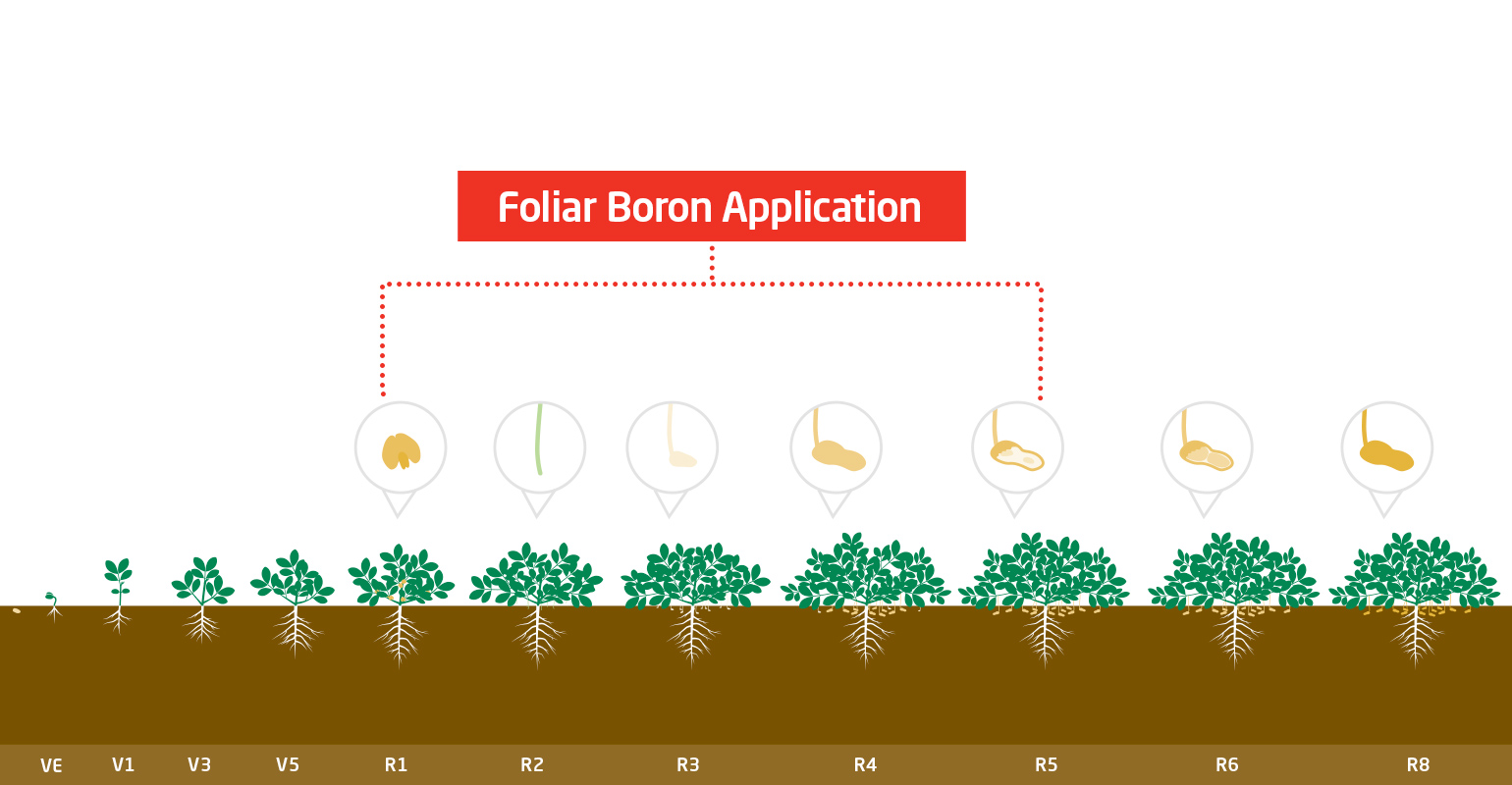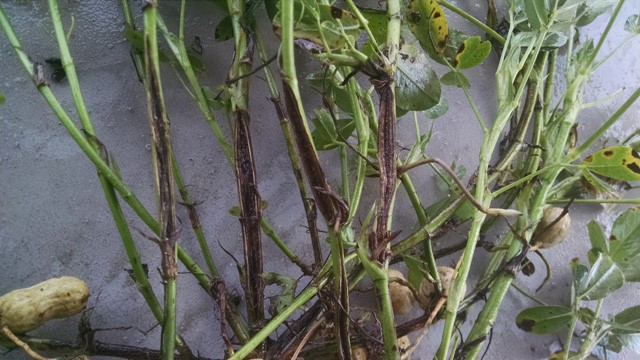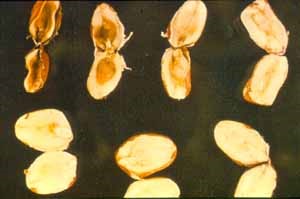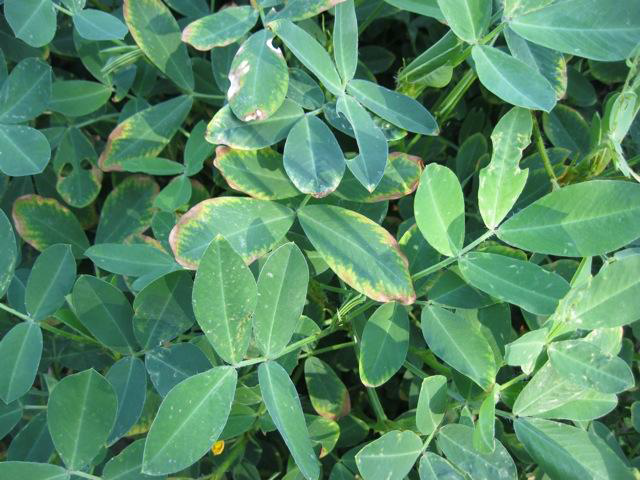Importance of Foliar Boron Applications in Peanuts
April 21, 2020
Boron is Key for Fruit Set and Development
Low boron (B) supply can lead to a loss of fruit set and development. If boron deficiencies are severe, it can impact the flower’s development itself. Quality and yield are also positively impacted by improved sugar translocation to developing peanuts and to prevent “hollow heart”.
Conditions Leading to Boron Deficiencies
Because peanuts are normally grown in sandy soils that are low in boron, they are responsive to foliar boron applications. To further complicate the issue, boron is highly mobile and may rapidly leach from the root zone. Along with manganese, it is among the most commonly deficient micronutrients in sandy soils. Typically well-drained and excessively-drained sands are most susceptible to boron deficiency.
Desired Boron Tissue Test Values
The desired range for in tissue test for is between 25 to 60 ppm boron prior to or at bloom stage.
Key Application Timings and Rates
Because boron is important for pollination and fruiting, the recommended timing for B applications on peanuts is early bloom. The typical practice is to include boron with early fungicide sprays. In severe boron deficiencies it may advisable to make additional foliar sprays through fruit development. Boron can be applied in the soil at planting, however like nitrogen, boron can be highly mobile in soils and leach out and not be available later when needed. Most Universities recommendation for B on peanuts is approximately 0.5 lb. B/A. This can be applied in one application or split into 2, 0.25 lb. B/A applications.
Boron Mobility
Boron tends to bind to cell walls once in the plant, limiting its mobility. BRANDT® Smart System® chemistry cross-links the boron molecule to allow it to move to the growing points much more efficiently. This leads to lower application rates, higher nutrient efficiency and better return on investment.
BRANDT Products
Key BRANDT product foliar application include:
- BRANDT Smart B Mo
- BRANDT Smart K B
- BRANDT 10% Boron


Split branches from severe boron deficiencies.
Credit: UF IFAS Extension

Hollow heart.
Credit: www.fftc.org.tw

Boron toxicity.
Credit: NC State Univ
